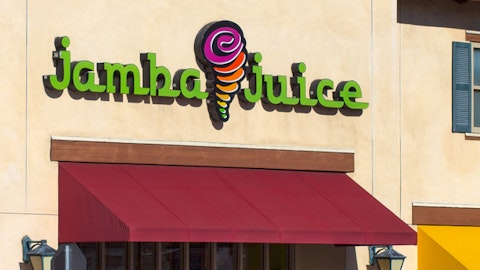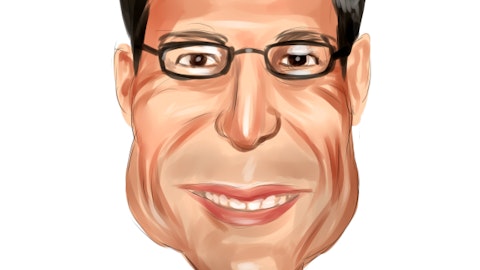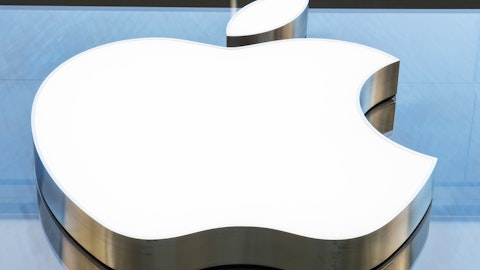This is not the first time we have reported on hedge funds making bets on very similar positions. While there is nothing necessarily surprising about that in and of itself as some funds have thousands of positions, and there is bound to be some overlap, it is often the case that similar overlap between funds is not at all random, but that one can find many logical explanations, including the funds’ specialization in similar sectors, or their strategies. Still, we prefer to leave this question open-ended and let the reader make the final decision after a brief review of the major holdings. In this article we will go through the top similar picks of Chase Coleman’s $20 billion Tiger Global Management and the $798.95 million Meru Capital, founded by Guru Ramakrishnan. In total, the funds have 16 similar stocks in their portfolios, and some of the picks have an apparent connection: they are stocks of Chinese companies, which aren’t exactly abundantly traded on U.S exchanges, so there are relatively few and far between. So let’s take a closer look at five of these shared picks from the two firms, which are JD.Com Inc (NASDAQ:JD), Alibaba Group Holding Ltd (NYSE:BABA), Vipshop Holdings Ltd (NYSE:VIPS), Restoration Hardware Holdings Inc (NYSE:RH) and Charter Communications Inc (NASDAQ:CHTR), including how they have performed recently and how the managers position themselves in these stocks. But, first, we make a short review of the hedge funds, mentioned above.

Most investors don’t understand hedge funds and indicators that are based on hedge funds’ activity. They ignore hedge funds because of their recent poor performance in the bull market. Our research indicates that hedge funds partly underperformed because they aren’t 100% long. Hedge funds’ fees are also very large compared to the returns generated, which reduces the net returns delivered to investors. We uncovered through extensive research that historically, hedge funds’ long positions in certain stocks actually outperformed the market greatly, and it has held true to this day. For instance, the 15 most popular small-cap stocks among funds has beaten the S&P 500 Index by more than 85 percentage points since the end of August 2012. These stocks returned a cumulative of 145% vs. less than 60% for the S&P 500 Index (read the details). That’s why we believe investors should pay attention to what hedge funds are buying, particularly in the small-cap sector, rather than what their net returns are.
Tiger Global Management was founded by Chase Coleman back in 2001 and it is widely-known for its very profitable early-seed investments in technology companies. Prior to 2008, the fund made around 44% in average returns per year. Though these days the results are more humble, it still deserves a great deal of respect and continues to outperform the industry at 14-17% per annum. Currently Tiger Global is undergoing one of the biggest management changes in its history, which could significantly affect its future performance, as Feroz Dewan, one of the key players at the firm and previously the manager of its Tiger Global fund, is scheduled to leave the firm by the end of June to start his own investment firm. Meru Capital, the other hedge fund, is about 20 times smaller in terms of managed money. Founded in 2009 by four former partners of Citigroup Inc (C), the firm specializes in value investments in bonds, alternative investments, currencies, and equities. Referring to the point about the logical explanations for connections, we can see one of them in that both funds have allocated the largest share of their public equity portfolios into service stocks. According to the latest 13F filings, Tiger Global held around 47.22% of the value of its public equity portfolio invested into service companies, while Meru Capital stood at 46.69%.
Follow Chase Coleman's Tiger Global Management LLC
Starting with JD.Com Inc (NASDAQ:JD), Chase Coleman recently added an additional 309% to his position in this stock, pushing JD.Com to the lead in the public portfolio of Tiger Global in terms of value. After the first three months of the year, the fund reported owning some 20.92 million shares valued at $614.67 million. Coleman’s colleague, Guru Ramakrishnan, has only recently initiated a $13.01 million position in this company, which consisted of 442,640 shares. Such interest from both investors is partly explained by JD.Com Inc (NASDAQ:JD)’s successful run, during which the stock delivered 31.45% returns on a year-to-date basis. Moreover, this second-largest Chinese e-commerce business is planning to create a joint venture with ZestFinance in order to launch a customer credit data system and beat its direct rival in the person of Alibaba Group Holding Ltd (NYSE:BABA). Hillhouse Capital Management, led by Lei Zhang, heads the list of shareholders of JD.com, with 143.40 million shares valued at $4.21 billion.
In the meantime, it seems that Tiger Global and Meru Capital decided not to waste their time on the forecasts of who will win in the battle of these e-commerce giants, and instead preferred to hold Alibaba Group Holding Ltd (NYSE:BABA) together with their shares of JD.Com Inc (NASDAQ:JD). Chase Coleman added an additional 16% to his stake in Alibaba, ending the first quarter with 6.69 million shares worth $556.87 million, while Guru Ramakrishnan reduced his position by 12% to $10.81 million, leaving 129,838 shares on his hands. The shares of Alibaba Group Holding Ltd (NYSE:BABA) have lost 11.3% of their value this year. Last February, the company invested $590 million in Chinese smartphone maker Meizu, planning to expand the distribution of its own mobile operating system. The list of the largest shareholders of Alibaba is topped by Discovery Capital Management, managed by Rob Citrone, as it holds around 8.77 million shares valued at $730.36 million.





